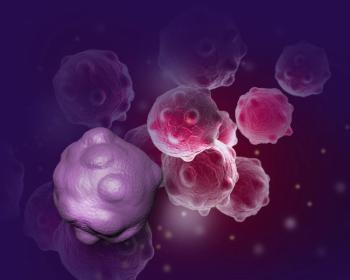
ONCOLOGY Co-Editor-in-Chief Julie M. Vose, MD, MBA, explores high drug costs and financial toxicity.

Your AI-Trained Oncology Knowledge Connection!


ONCOLOGY Co-Editor-in-Chief Julie M. Vose, MD, MBA, explores high drug costs and financial toxicity.

In this month's Letter to the Readers, ONCOLOGY co-editor-in-chief Julie M. Vose, MD, MDA, dives into the topic of survivorship care.

Julie M. Vose, MD, MBA, chief of Hematology/Oncology at the Buffett Cancer Center of the University of Nebraska Medical Center, writes about American Board of Internal Medicine Recertification Exams in her monthly "Letter to the Readers."

ONCOLOGY co-editor-in-chief Julie M. Vose, MD, MBA, re-caps the 2021 American Society of Hematology conference and discusses which presentations were the most important.

ONCOLOGY co-editor-in-chief Julie M. Vose, MD, MBA, anticipates how COVID-19 will continue to impact the oncology field.

ONCOLOGY® co-editor-in-chief Julie M. Vose, MD, MBA, recaps the 2021 Leadership, Empowerment, and Development Conference: Enriching and Supporting Women in Hematology and Oncology.

ONCOLOGY® co–editor-in-chief, Julie Vose, discusses how the COVID-19 pandemic has caused physician burnout and what may be done to prevent it.
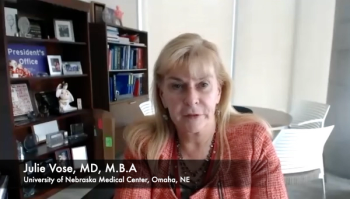
Julie Vose, MD, MBA, a professor of internal medicine in the Division of Oncology and Hematology at the University of Nebraska Medical Center, discusses novel treatment options for patients with hematologic malignancies at the 2021 American Society of Clinical Oncology Annual Meeting.

Julie Vose, MD, MBA, a professor of internal medicine in the Division of Oncology and Hematology at the University of Nebraska Medical Center discussed the benefits of CAR T-cell for patients with follicular lymphoma.

CancerNetwork® sat down with Julie Vose, MD, MBA, at the 2021 American Society of Clinical Oncology Annual Meeting to talk about a clinical trial comparing acalabrutinib versus ibrutinib for patients with chronic lymphocytic leukemia.

ONCOLOGY® co-Editor-in-Cheif Julie M. Vose, MD, MBA, chief of the Division of Hematology/Oncology at the University of Nebraska Medical Center in Omaha, Nebraska, discusses the emergence of telehealth during the COVID-19 pandemic and the needs of patients going forward.

Co-Editor in Chief of the journal ONCOLOGY discusses how potential shortages in oncology clinicians could influence the treatment of cancer going forward.

ONCOLOGY co–Editor-in-Chief Julie M. Vose, MD, MBA, details how underrepresentation of racial and ethnic minorities in clinical trials negatively impacts the medical community and calls for greater inclusion by removing some barriers to participation.

Unprecedented efforts from researchers and pharmaceutical engineers have brought about safe, effective vaccines, in record development times; now the focus must be on a federally coordinated program to administer those injections in the most efficient manner possible.
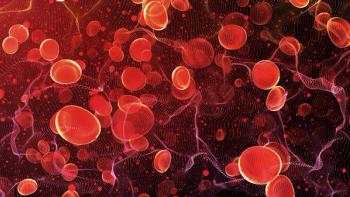
The 2020 American Society of Hematology Meeting and Exposition included several exciting presentations and promising data for patients with various hematologic malignncies.

Accurate and well maintained patient-level data is needed to gather and formulate real-world evidence that is necessary to optimize existing treatment and shape future treatment for patients with hematological malignancies.


ONCOLOGY® Editor in chief Julie M. Vose, MD, MBA discusses both the positive and negative changes that have come about because of the COVID-19 pandemic.
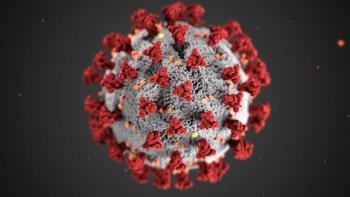
Editor in chief Julie M. Vose, MD, MBA discusses the difficulties of treating and caring for patients with cancer during the COVID-19 pandemic.
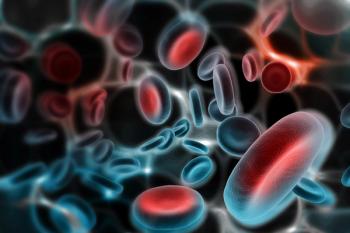
In this article, we present a case of a patient with relapsed Hodgkin lymphoma who responded to salvage chemotherapy incorporating brentuximab vedotin, a novel agent.


Querfeld et al have written a comprehensive evaluation of primary cutaneous and systemic anaplastic large cell lymphoma (ALCL). The important similarities between them are outlined in the article, for example tumor cells expressing the CD30 antigen for both subtypes. In addition, important differences such as the wide spectrum of CD30+ lymphoproliferative disorders of the skin and the large differences in outcomes of the primary cutaneous vs systemic types of ALCL are discussed. Other important differences include expression of the anaplastic lymphoma kinase (ALK) protein. The ALK protein is activated most frequently through the nonrandom t(2;5) chromosome translocation, resulting in fusion of the nucleophosim (NPM) gene located at 5q35 to 2p23 and encoding the receptor tyrosine kinase, ALK. Most patients with primary cutaneous ALCL are ALK-negative, yet their 5-year disease-free survival rate is > 90%. Systemic ALCL is divided into ALK-positive and ALK-negative cases. Patients with systemic ALCL that is ALK-positive have a much higher 5-year survival rate of 70%, compared with a rate of 49% for those with systemic ALCL that is ALK-negative.[1]

Burkitt lymphoma (BL) is a unique B-cell lymphoma characterized by a high proliferation rate and cytogenetic changes related to c-myc proto-oncogene overexpression. Burkitt lymphoma is a highly aggressive B-cell lymphoma that is most frequently seen in children and young adults in endemic areas.

The past 20 years have brought significant advances in our ability to manage patients with non-Hodgkin's lymphoma. More precise classification systems, improvements in diagnosis and staging, and effective new treatments have improved outcomes and made cure a reasonable goal for many patients with these disorders.

The most common indolent lymphoma, follicular lymphoma comprises 35% of adult non-Hodgkin’s lymphoma (NHL) in the United States and 22% worldwide. Features associated with adverse outcome include age, male gender, disease stage, and performance status, with the International Prognostic Index being the most widely used risk classification system. Long-term disease-free survival is possible in select patient subgroups after treatment, but very late relapses suggest that quiescent lymphoma cells might be harbored for long periods of time. Radiation therapy is the mainstay of treatment for limited-stage follicular lymphoma, but there is some experience with chemotherapy and combined chemoradiation. When to initiate treatment in patients with advanced disease is controversial, but options include various combined chemotherapy regimens, monoclonal antibodies, radiolabeled antibodies, and bone marrow or stem cell transplantation. Future directions in the treatment of follicular lymphoma include vaccines, antisense therapy, and proteasome inhibitors.

Drs. Baidas, Cheson, Kauh, and Ozdemirli present a thorough and balanced review of mantle cell lymphoma (MCL) and the various current treatment options. MCL has been recognized as a distinct pathologic entity for over a decade. It represents 6% to 9% of all non- Hodgkin’s lymphoma cases, and the diagnosis is based on a combination of morphologic, immunophenotypic, and cytogenetic criteria as discussed in the article. The hallmark of MCL is t(11;14)(q13;q32), a translocation that juxtaposes the Bcl-1 gene on chromosome 11 and immunoglobulin (Ig)H promoter on chromosome 14, leading to overexpression of cyclin D1. Although it had been considered an indolent lymphoma for many years, MCL has a poor prognosis with short remissions and a median survival of 3 to 4 years.[1,2]

This special supplement to Oncology News International includes updated results of studies with anti-CD20 therapy and other targeted therapies in the treatment of lymphomas, chronic lymphocytic leukemia, and immune thrombocytopenic purpura. The results were presented at the American Society of Hematology 44th Annual Meeting in Philadelphia, December 6 to 10, 2002.

This special supplement to Oncology NewsInternational includes updated results ofstudies with anti-CD20 therapy and othertargeted therapies in the treatment oflymphomas, chronic lymphocytic leukemia,and immune thrombocytopenic purpura. Theresults were presented at the American Societyof Hematology 44th Annual Meeting inPhiladelphia, December 6 to 10, 2002.City Hall in Philadelphia, Pennsylvania

This special supplement to Oncology NewsInternational includes updated results ofstudies with anti-CD20 therapy and othertargeted therapies in the treatment oflymphomas, chronic lymphocytic leukemia,and immune thrombocytopenic purpura. Theresults were presented at the American Societyof Hematology 44th Annual Meeting inPhiladelphia, December 6 to 10, 2002.

This special supplement to Oncology NewsInternational includes updated results ofstudies with anti-CD20 therapy and othertargeted therapies in the treatment oflymphomas, chronic lymphocytic leukemia,and immune thrombocytopenic purpura. Theresults were presented at the American Societyof Hematology 44th Annual Meeting inPhiladelphia, December 6 to 10, 2002.